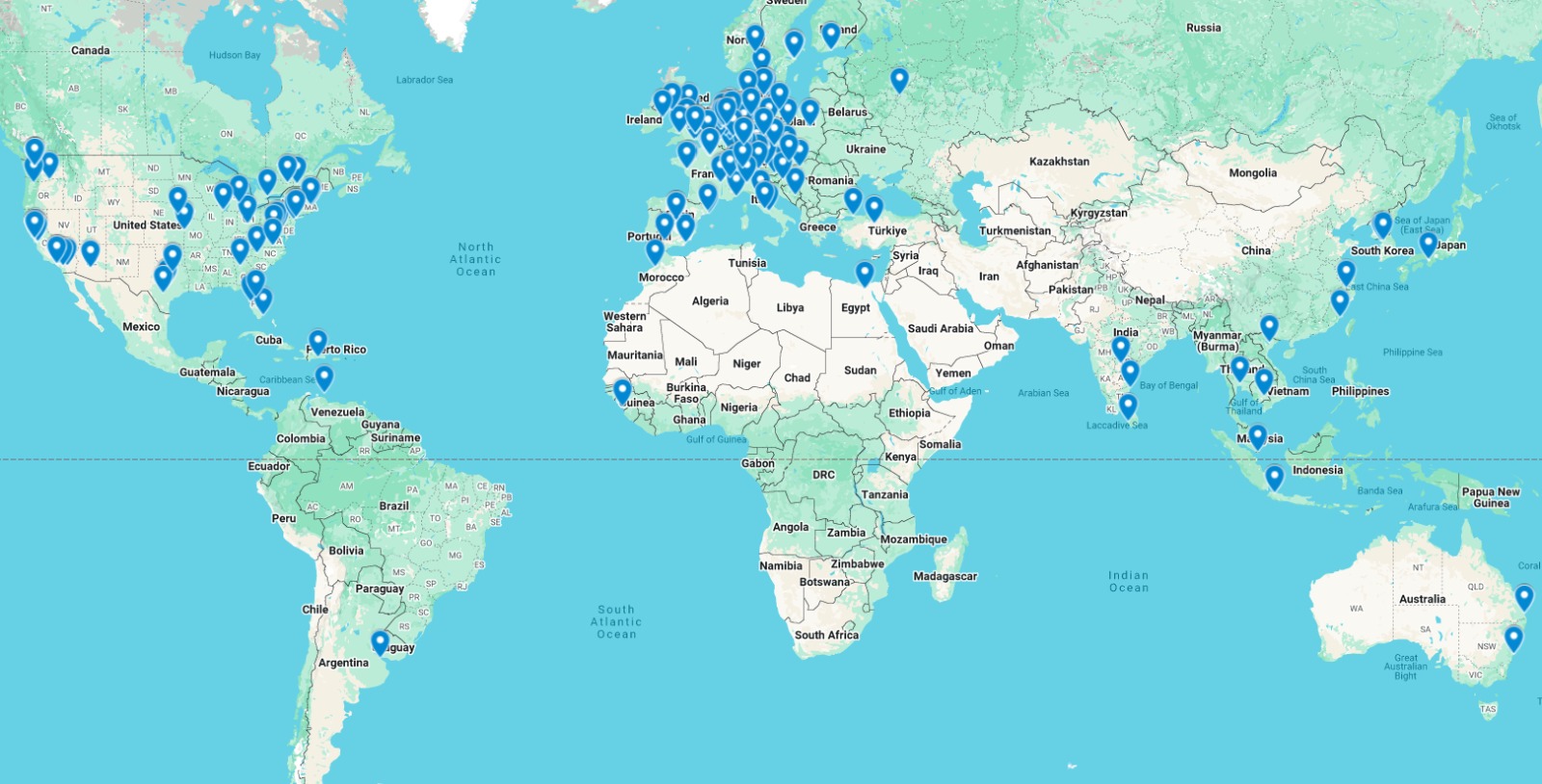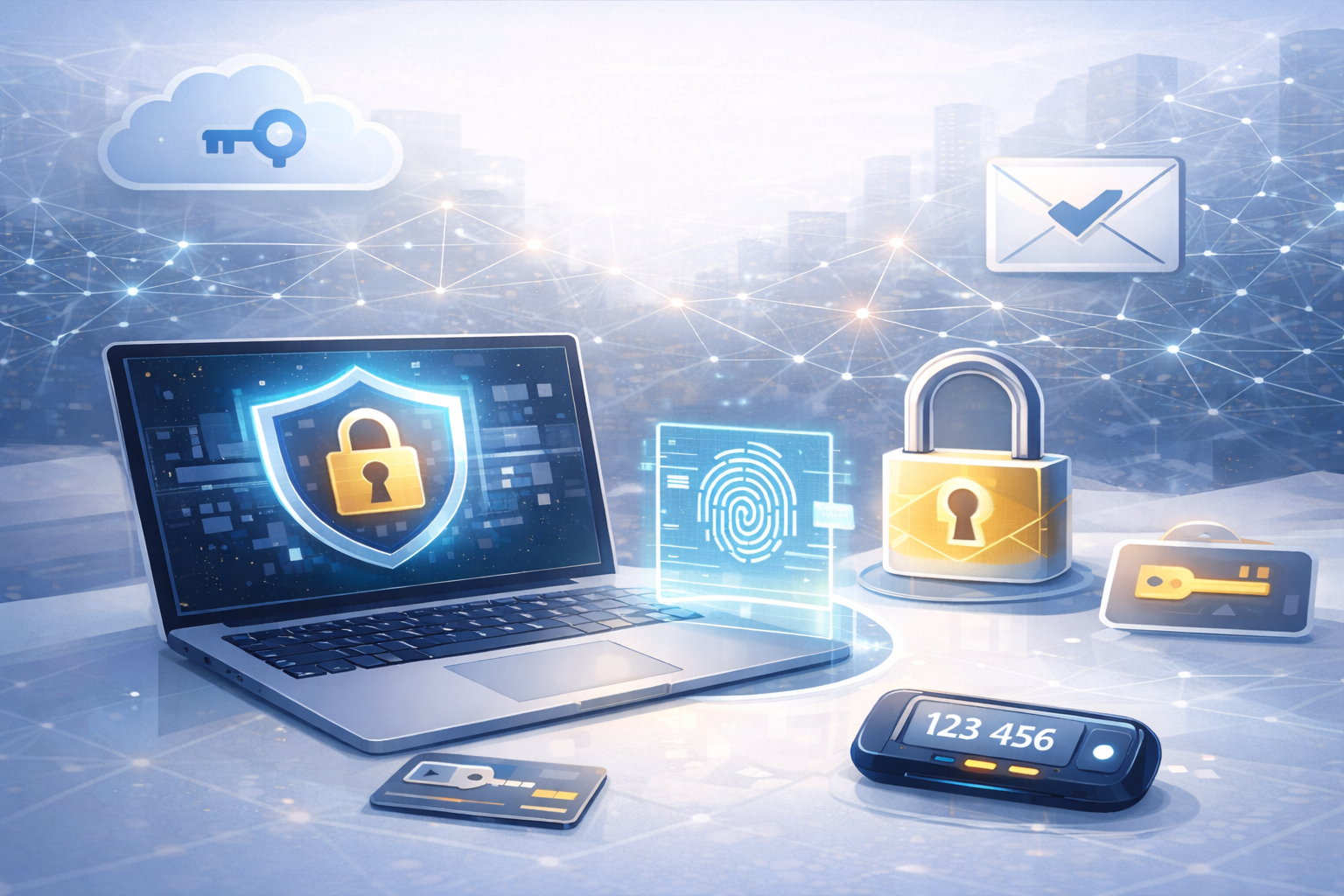
Peter Lahousse: “Password management is key to digital security”



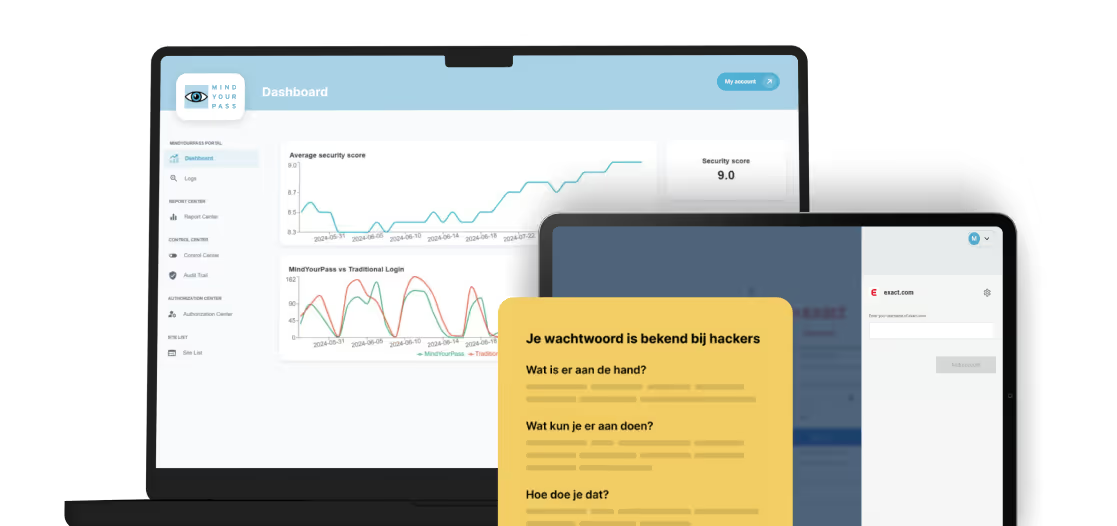
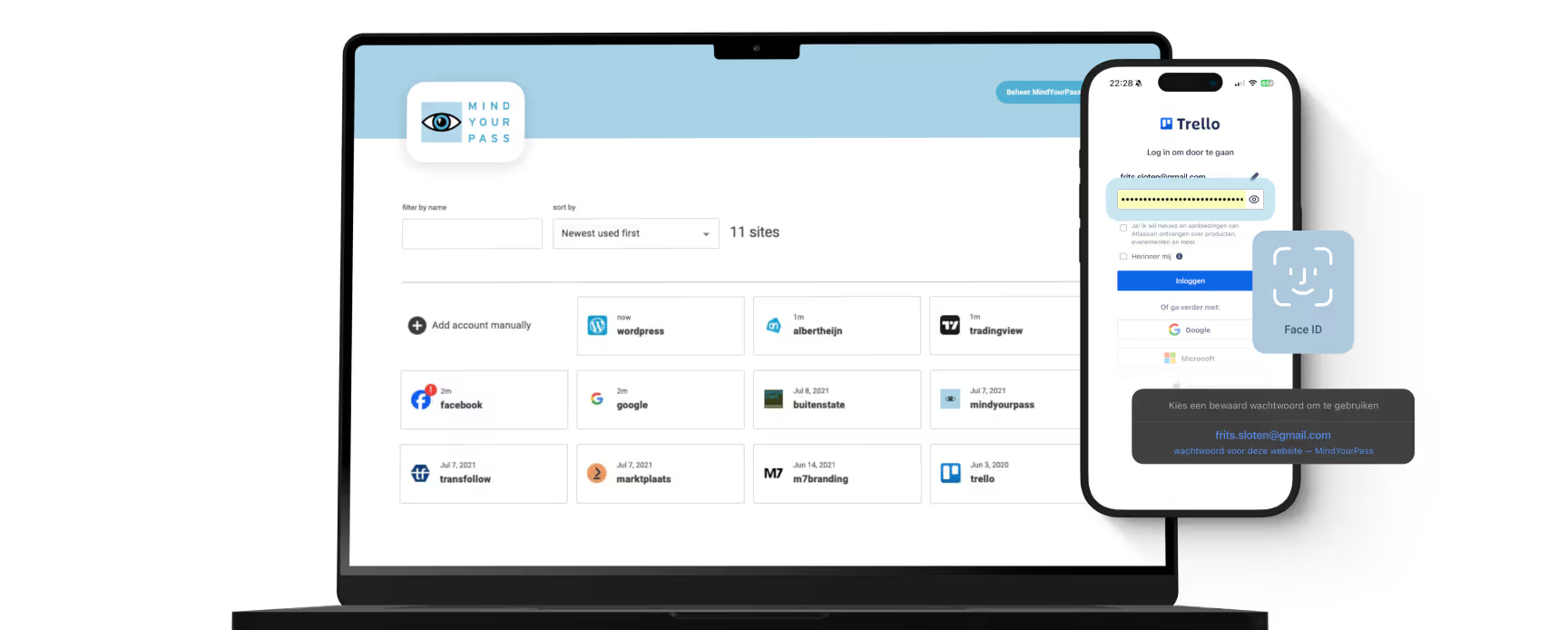
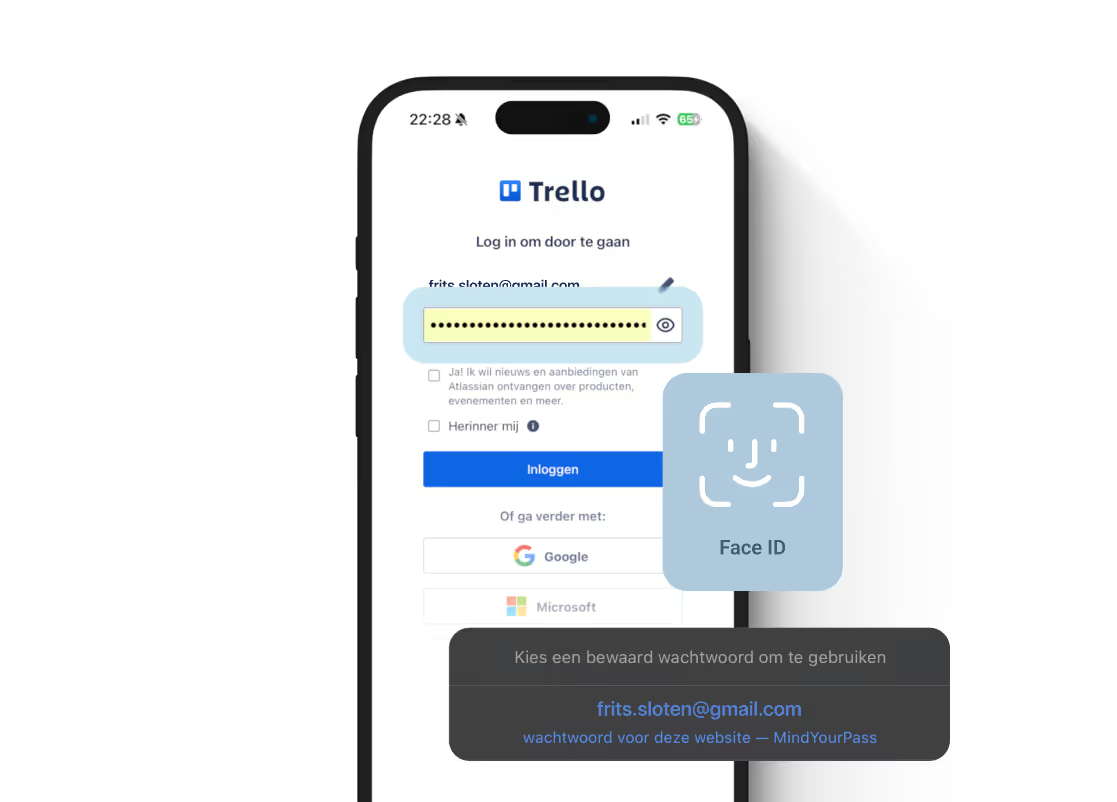



In his daily work, he sees how vulnerable organizations are - and how often things go wrong because of something seemingly simple: passwords. The solution? “We have to stop muddling around. MindYourPass is one of the few solutions that really does the right thing.”
Cybercrime over the years
Peter Lahousse became fascinated by computers at an early age. While his peers were playing football outside, he was inside programming. He took that passion into the police, where he already warned about the danger of cybercrime at the turn of the century. “That wasn't taken seriously at the time,” he recalls. “People thought: that only applies to high-tech companies. That doesn't bother ordinary citizens.”
Nevertheless, Peter was right. He became one of the first members of a specialized Dark Web team within the police and trained detectives in digital investigation for years. Later, he founded Cybercrimeinfo.nl: a knowledge platform that is now being used by governments, companies and citizens to gain insight into digital threats.
In the early days, cybercriminals were technically savvy, often brilliant hackers with specialist knowledge. Today, that's different. “Cybercrime has become a service,” warns Peter. “Just like websites, you can now buy ready-made packages. For a hundred euros, you can rent a tool that bypasses two-factor authentication.”
As a result, the threat is not only greater, but also closer. “Cyber attacks are no longer the preserve of an elite group. Anyone with a little bit of motivation and money can now do harm. That makes the risk exponentially greater.”
Passwords as a weak spot, digital security as a luxury
According to Peter, the vulnerability of companies almost always starts with passwords. “We all know what to do: no reuse, complex combinations, no sticking to post-its. And yet, things go wrong over and over again.”
He compares it to road safety. “It wasn't until we started requiring seatbelts that the number of deaths in road accidents fell. So rules work. So why aren't good passwords mandatory?” Most people use weak passwords, reuse them in multiple places, or store them in insecure ways. The result: an open door for cybercriminals.
In addition, digital safety is still too often a luxury today, says Peter. “Large companies hire expensive security firms, but SMEs often have to figure it out for themselves. And that while they are just as interesting for criminals.”
That is why he remains committed to raising awareness, sharing knowledge and accessible solutions. “I do what I do to make digital safety more democratic. MindYourPass fits in perfectly with that. It brings strong security to everyone's reach.”
Three fundamental steps for SMEs
What can companies do in concrete terms to better protect themselves against cyber threats? For many SMEs, cybersecurity sounds like something complex, technical and expensive. But according to Peter Lahousse, it doesn't have to be that at all. “You don't have to build a digital fortress,” he says. “But at least make sure your front door is locked.” With three well-thought-out measures, you can already cover a significant part of your risk as a company.
1. Automate your password management with a solution like MindYourPass
“If you have to start somewhere, start with this,” says Peter. “Bad passwords, reuse, and keyboard post-its are still the order of the day, even though strong passwords are your first line of defense.”
A solution like MindYourPass addresses the password problem at the root. It generates, manages and renews passwords automatically, without employees having to invent or remember anything themselves. This removes the biggest risk for people - without complicating the user experience.
2. Activate two-factor authentication on all critical accounts
While two-factor authentication (2FA) isn't infallible, it remains an essential additional barrier against cyberattacks. Peter: “2FA makes it harder for criminals to access, even if they get a password.”
He does warn that some attacks today are aimed at circumventing 2FA, for example through social engineering or using Dark Web tools. “But as long as it doesn't become a false safety, it's a valuable addition. You close the windows and you lock them.”
3. Invest in awareness and behavioral change
Technology alone is not enough. Employees remain the weakest link if they don't know how cybercriminals work. “You're still so good at securing your systems,” says Peter, “but if someone clicks on a fake email or shares their login details with a 'colleague' on the phone, you're still vulnerable.”
According to him, continuous training is crucial: short modules on phishing recognition, safe handling of data and the psychology behind social engineering. “It's not just about knowledge, it's also about behavior. You have to make people resilient: not afraid, but alert.”
Start at the front door
According to Peter, it's important for SMEs to realize: you don't have to build a fort to be safe. But locking the front door is the least. “With these three steps, you can significantly increase your digital resilience. Not by closing everything up, but by acting smartly and practically.”
In other words: no expensive packages, no technical jargon, no barriers. Just get started. And that starts with the password.
Digital safety as a basic right
“We are far from being digitally mature,” says Peter. “But we do have the means to become safer. We just have to use them.”
Peter's message is simple but urgent: digital safety must become as obvious as road safety. “And MindYourPass shows that it's possible: if we want it.”
Get in touch with us.
Let MindYourPass make your organization safe.

Log in securely with ease.
At home and at work.
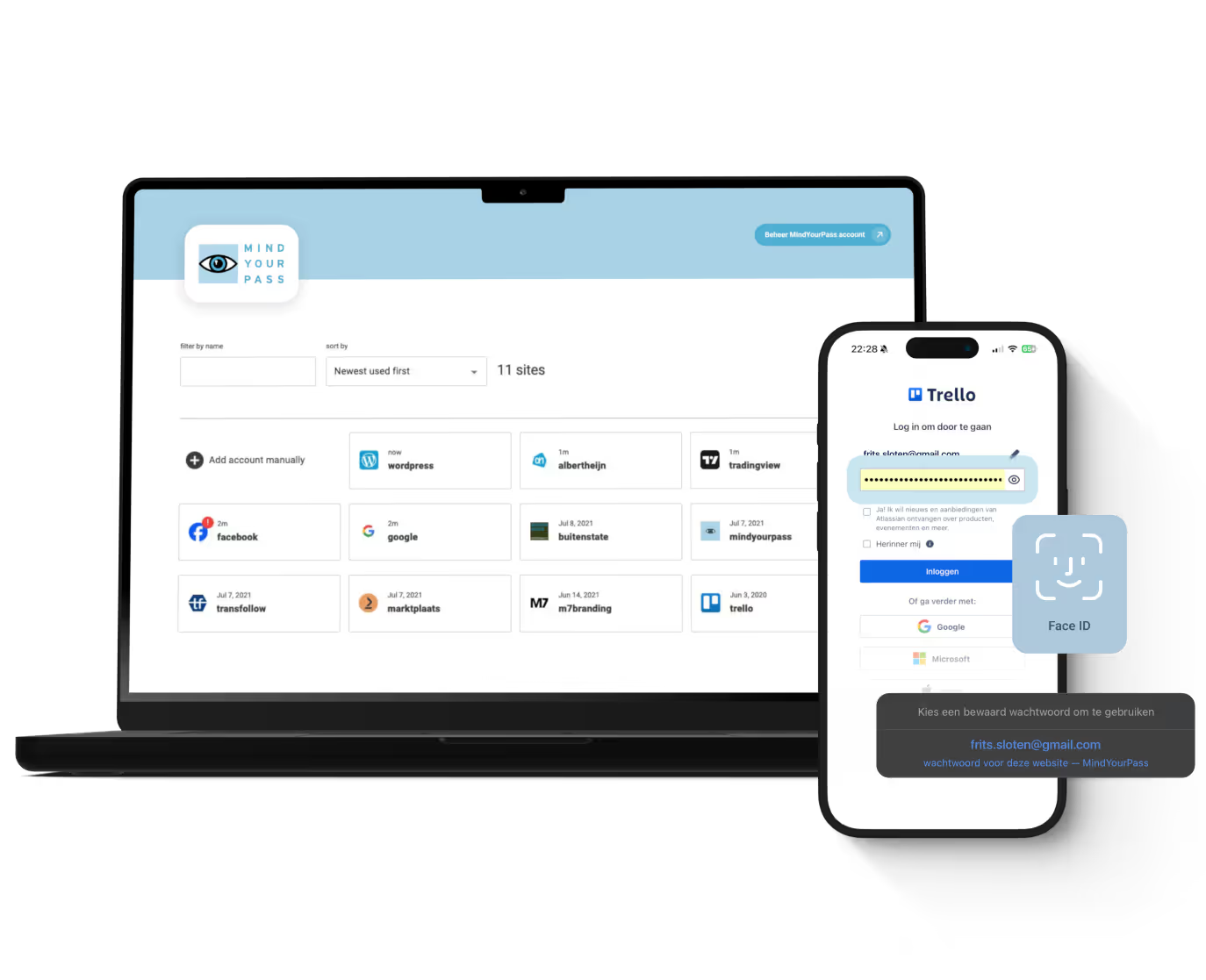

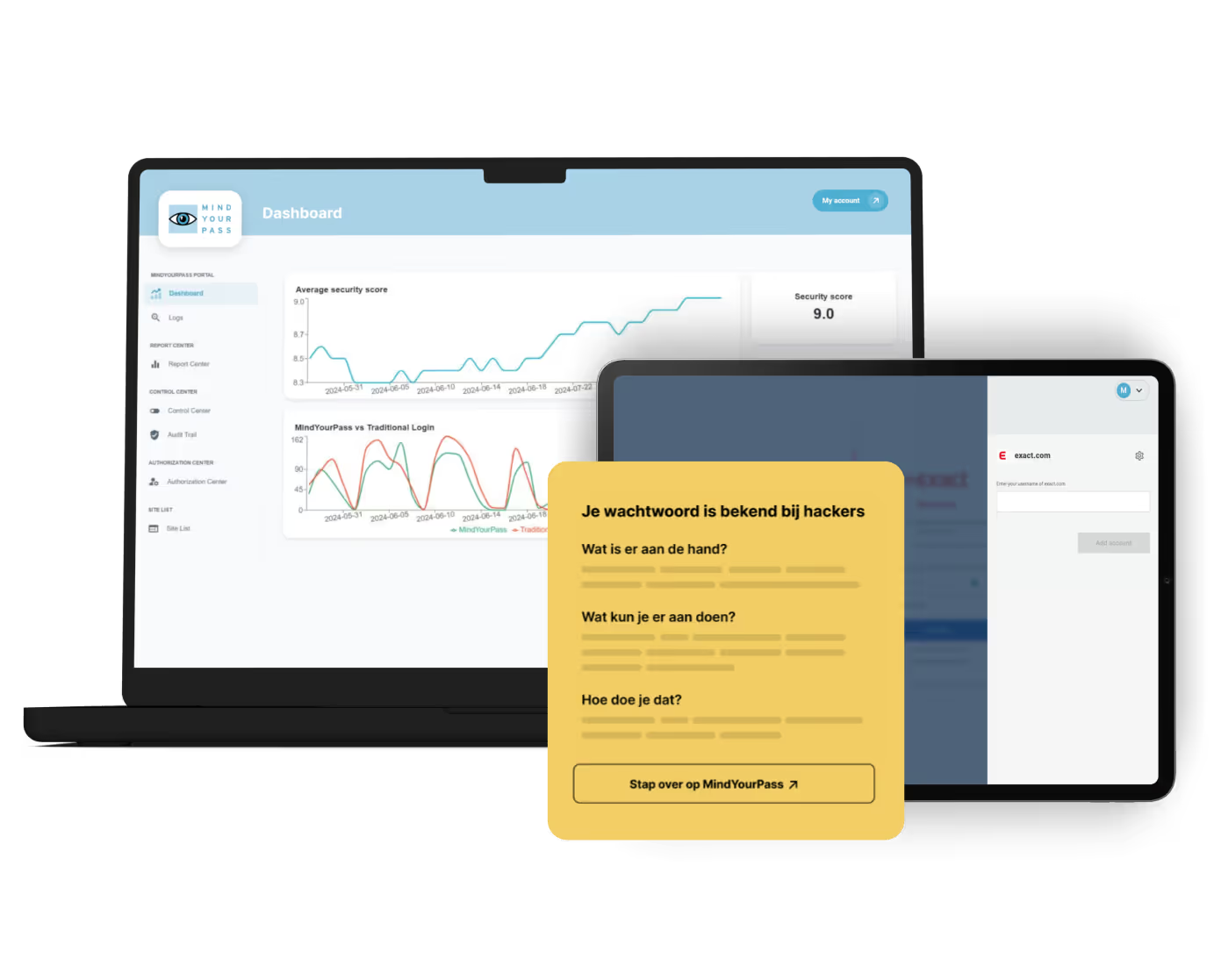


Triple-i™ improvement method
De kluisloze wachtwoordmanager van MindYourPass
Met de wachtwoordmanager van MindYourPass maak je eenvoudig al je wachtwoorden ijzersterk en uniek. De wachtwoordmanager beheert jouw wachtwoorden, waarmee jij dagelijks kunt inloggen op al je accounts. Zonder dat jij je wachtwoorden hoeft in te typen. Dat doet MindYourPass voor je.





